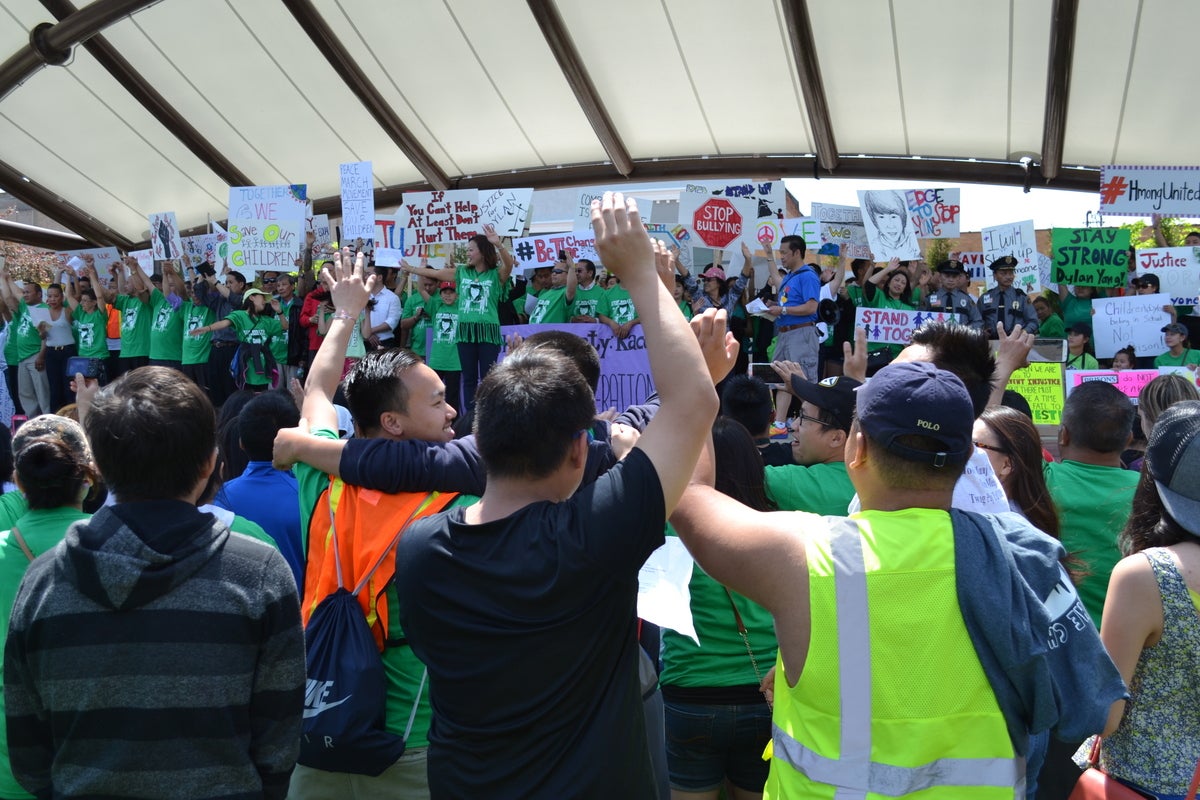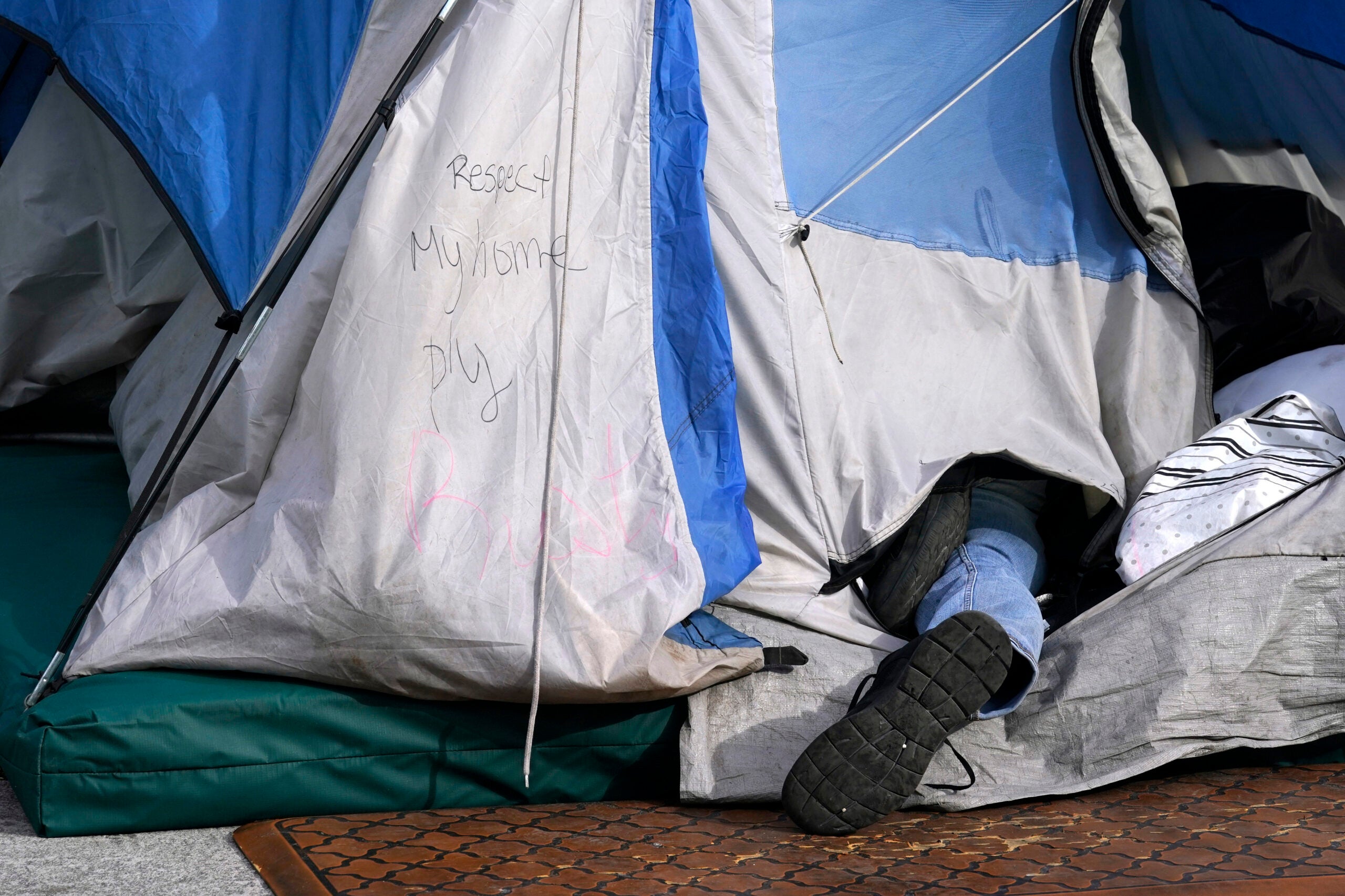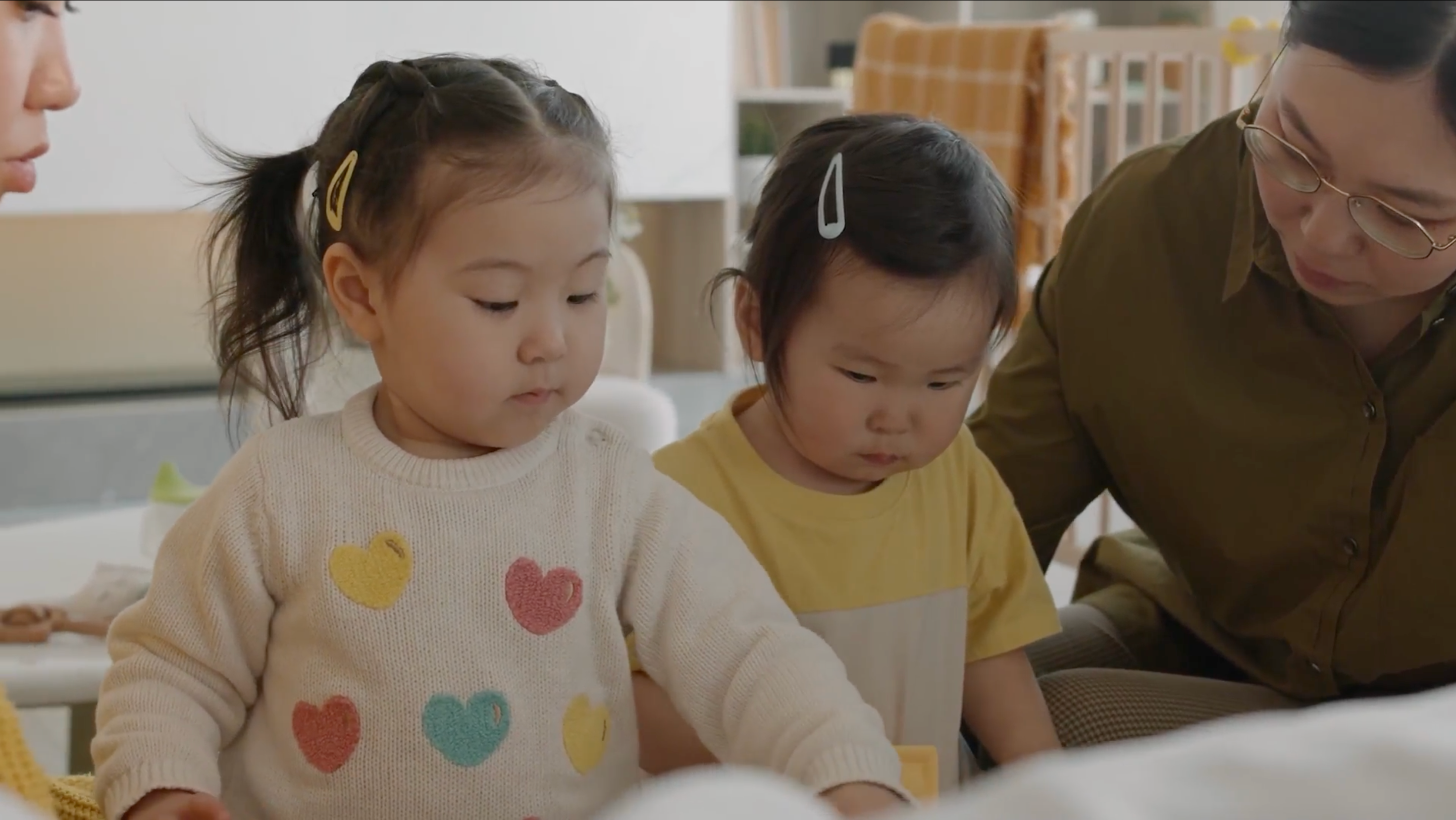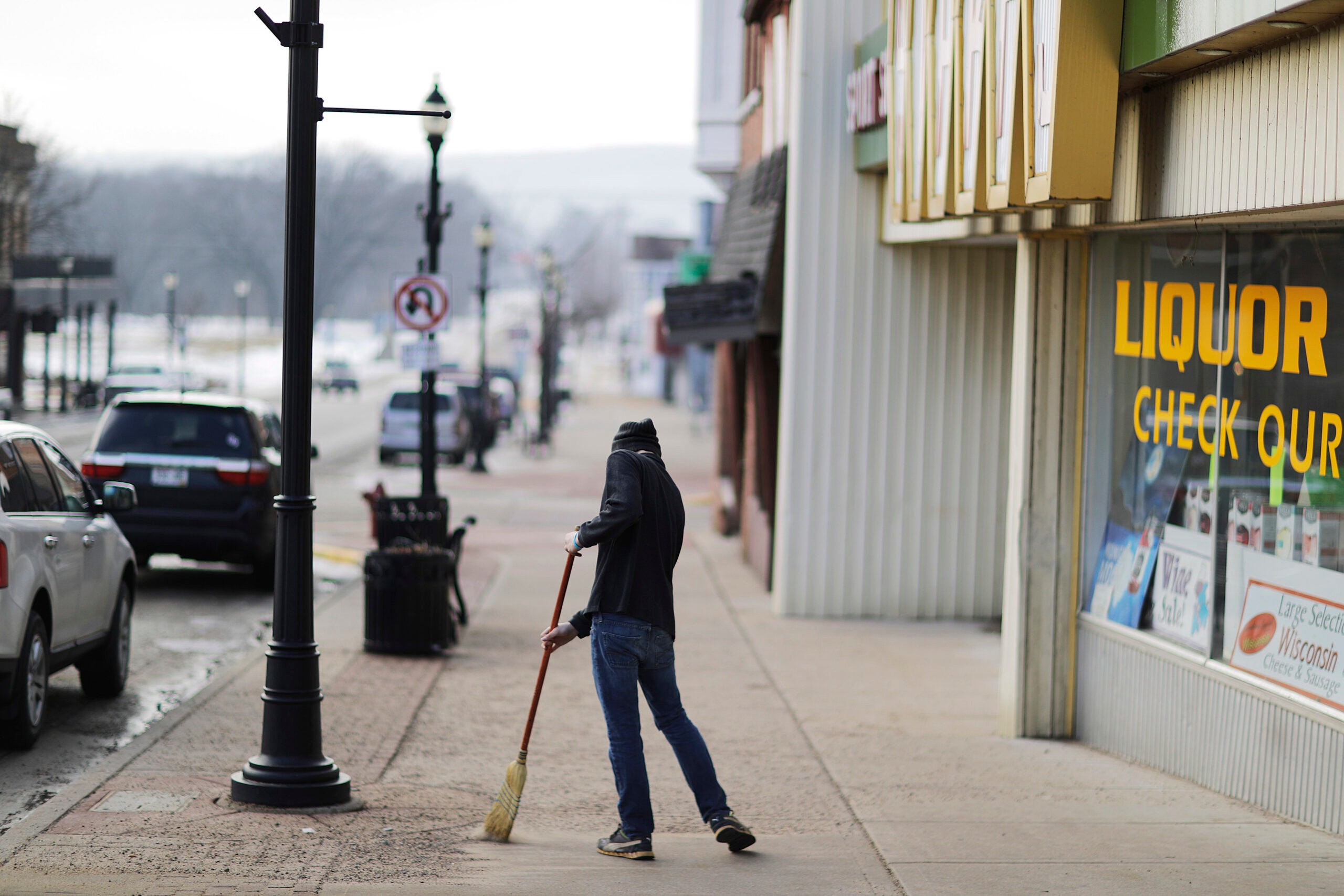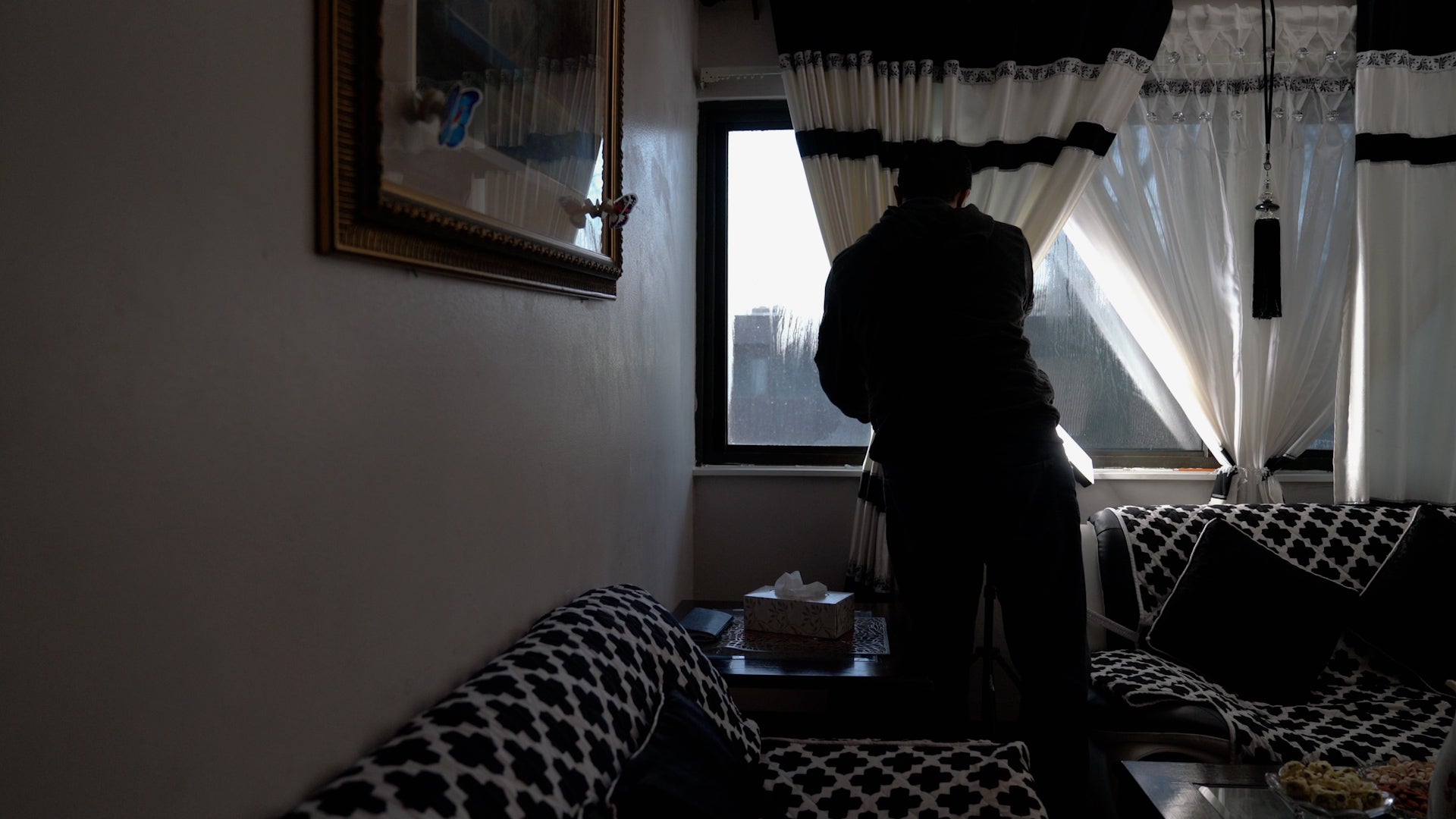The Dylan Yang homicide case became a rallying point for Hmong activists across the nation, and strained the relationship between minority groups and local law enforcement.
Now, the controversial court case has led to a new project called Toward One Wausau aimed at ending the city’s racial and cultural divide. The project is sponsored, in part, by Wisconsin Public Radio.
Fifteen-year-old Yang fatally stabbed 3-year-old Isaiah Powell in February 2015 in Wausau. When Yang was convicted in adult court, it led to a noisy demonstration and a march on the county courthouse.
Stay informed on the latest news
Sign up for WPR’s email newsletter.
The participation of Marathon County Administrator Brad Karger in the demonstrations drew a sharp rebuke from Wausau Police Chief Jeff Hardel, who sent letters in opposition to members of the Marathon County Board and the Wausau City Council. Karger was later suspended for his participation.
But now, Wausau Deputy Police Chief Ben Bliven is involved in the Toward One Wausau project.
“I think the biggest challenge that we see today in our community and across the country is this divide where people are digging in their heels on both sides of the conversation,” Bliven said. “There are people on the one side that are saying, ‘The police are racist’ and then there’s the police on the other side that say, ‘No, we’re not racist, we’re doing our job.’”
Bliven said opening up a dialogue is crucial.
“We all experience the world in a different way, and the better we can understand each other and where we’re coming from, the better we’re going to be in the long run in having a great, diverse community,” Bliven said.
Maysee Her immigrated to Wausau from Laos in the 1970s as an infant. Her parents struggled because of the cultural barrier and their lack of English skills. But she was able to get a doctorate and is now an associate professor of education at the University of Wisconsin-Stevens Point. She, too, is involved in Toward One Wausau.
“Just coming together, being able to be open to hearing what each other has to say, and why the divide exists, is powerful,” Her said.
She said the Hmong community is close knit, and she isn’t surprised the controversy surrounding a Wausau court case could resonate nationally.
“No matter where you are, it’s very likely that you know someone who’s related to someone else, even if they’re way out in California,” Her said. “So when they hear about something like this, it impacts the whole Hmong community.”
Wausau has a small but growing African-American population. Chris Norfleet grew up in the Englewood neighborhood on the south side of Chicago and is now involved in Toward One Wausau. He said white people in the project’s focus groups have had trouble relating to his childhood experience.
“When I was growing up dreaming was for sleeping,” Norfleet said. “And I never had a dream of what I wanted to be. And when I was younger, I was never motivated or empowered to feel that way, and that is a totally separate experience for a lot of the people sitting at the table with me.”
Norfleet said those who grew up in Wausau take the benefits of living in a safe community for granted.
“When you spend so much time just trying to make it home without being harmed, it can be a little difficult to try to strive for something greater,” Norfleet said.
Toward One Wausau co-chair Tony Gonzalez works as interpreter and helps Hispanics navigate the criminal justice system. He said the project’s focus groups opened his eyes.
“There is racism. But most of the time what I find out is that people don’t understand. They don’t know each other. They don’t know different cultures, and that divides,” Gonzalez said. “It’s the fear of not knowing who is just like I am. So part of the process that we’re trying to do here is, let’s open up that door, let’s break down that wall, and that way we can relate to each other.”
Deputy Chief Bliven said progress is already being made. On the day of Dylan Yang’s sentencing, he walked up, in uniform, to a group of protesters to open up a dialogue. He said he was concerned about how they would react, and then was pleasantly surprised.
“I had the urge to go and talk to them, but I was really nervous about how I would be received in full police uniform,” Bliven said. “And I’ll tell you, it was a tremendous experience for me personally to be welcomed into that group. Everybody wanted to talk to me, and tell me how they were feeling and how they hoped we could all move forward as a community.”
Toward One Wausau is conducting a community survey on race, culture and law enforcement, and will develop a plan of action later this year. The project is cosponsored by Wisconsin Public Radio, the Wisconsin Institute for Public Policy and Service and the Wausau Daily Herald.
Wisconsin Public Radio, © Copyright 2025, Board of Regents of the University of Wisconsin System and Wisconsin Educational Communications Board.
